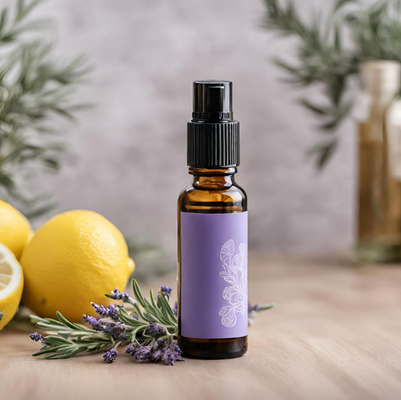Has products that are not that easy to find.
The Mace Granular works very well as the neighbor's cat stop using my lawn for their toilet. I also apply some along the fence .
Free Shipping on $99+ Orders
Free Shipping on $99+ Orders
May 14, 2024 5 min read
Unlock the Power of Natural Insecticides. Welcome to a cleaner, greener way to manage pests! Natural insecticides are becoming the go-to choice for environmentally conscious individuals worldwide. These substances offer a compelling alternative to their synthetic counterparts, aligning with the growing demand for sustainable and health-friendly solutions.
Natural insecticides are derived from organic sources—plants, minerals, or other naturally occurring materials. Unlike synthetic chemicals, they often break down quickly in the environment, reducing the risk of long-term pollution.
Opting for natural insecticides isn't just good for the earth; it's a healthier choice for our families and pets. These products typically pose fewer health risks than synthetic pesticides, which can contain toxins harmful to both humans and wildlife.
From the potent oils extracted from herbs like citronella and lavender to the microbial effects of substances like neem oil, the variety of available natural insecticides is vast. Each offers unique benefits and specific applications, tailored to safely and effectively control different pest populations.
By turning to nature's solutions, we embrace a pest control method that safeguards our health and the planet's future. Join us as we delve deeper into the world of natural insecticides, understanding their mechanisms, exploring popular options, and learning how to utilize them effectively in our daily lives. ....Click Now to Shop for Natural Outdoor Insect Repellent!
Natural insecticides are not only diverse in their sources but also in how they function to deter and eliminate pests. This section will explore the scientific principles behind natural insecticides. Compare their effectiveness with synthetic pesticides, and discuss which pests are particularly vulnerable to these eco-friendly solutions.
Natural insecticides work through a variety of mechanisms. Some, like pyrethrin derived from chrysanthemum flowers, attack the nervous systems of insects, causing paralysis and death. Others, such as neem oil, disrupt the life cycle of pests, preventing them from maturing and reproducing. This section will detail the active compounds involved and explain their modes of action against pests.
Not all pests are affected equally by natural insecticides. For example, garlic oil may repel deer and certain insects with its strong odor. While diatomaceous earth physically damages the exoskeletons of soft-bodied insects like aphids and slugs. Here, we'll outline which natural insecticides are best suited for common household and garden pests. Providing a targeted approach to pest control.
While synthetic pesticides often offer quicker results, natural insecticides are gaining ground in terms of effectiveness. Especially with advances in formulation and application techniques. This subsection will compare the cost, safety, and long-term effectiveness of natural versus synthetic options, helping you make informed decisions about pest control.
Understanding these aspects of natural insecticides can empower you to choose and use these products more effectively, ensuring safer pest control that aligns with sustainable practices.
As we continue to seek safer and more sustainable pest control options, understanding the top natural insecticides and their specific uses becomes crucial. This section highlights several effective natural agents, explaining their origins, how they function, and the best ways to apply them to ensure maximum pest deterrence and eradication.
Essential oils are powerful natural insecticides that offer a pleasant aroma while deterring pests. Oils such as eucalyptus, citronella, and tea tree work by masking scents that attract pests or by directly repelling them with their intense odors. We'll explore the most effective oils, their specific applications, and tips on how to use them to create a pest-free environment.
Some plants produce compounds that are naturally toxic to insects. Tobacco, for example, contains nicotine, a potent insecticide, while chrysanthemums produce pyrethrins, used in many commercial natural insecticide products. This subsection will cover a variety of plant-based insecticides, their preparation, and application methods.
Minerals like boric acid and diatomaceous earth are used to control insect populations effectively. Boric acid acts as a stomach poison for insects like ants and cockroaches, while diatomaceous earth causes physical damage to the exoskeletons of various pests. Here, we will discuss how these minerals work, the best practices for their application, and the types of pests they control most effectively.
By incorporating these natural insecticides into your pest management strategy, you can achieve effective pest control that is both eco-friendly and safe for use around humans and pets.
Embracing DIY solutions for pest control not only saves money but also ensures you know exactly what's going into your environment. This section provides easy-to-follow recipes for making effective natural insecticides at home and offers guidance on how to apply these mixtures to get the best results safely.
Creating your own natural insecticides can be simple and effective. Whether you need a spray for aphids in the garden or a solution to keep ants out of your kitchen, we've got you covered. This subsection will include recipes using common household ingredients like vinegar, garlic, and essential oils, complete with step-by-step instructions.
Knowing how to apply natural insecticides correctly is key to their effectiveness. This part will discuss various application techniques such as spraying, dusting, or setting up barriers, and will provide tips on the best times of day and conditions for applying these solutions to maximize their pest control potential.
While natural insecticides are generally safer than chemical options, they still require careful handling, especially around children and pets. This subsection will highlight important safety tips, such as proper storage, handling, and what to do in case of accidental exposure.
By using these DIY natural insecticide recipes and following our usage tips, you can protect your home and garden from pests in a way that is safe, effective, and environmentally responsible.
Adopting natural insecticides is more than just a method of pest control; it's a lifestyle change that promotes sustainability and safety. This section explores how to seamlessly integrate these eco-friendly solutions into your daily routines, ensuring ongoing pest management that supports a healthy environment.
Incorporating natural insecticides into your regular pest management practices requires a thoughtful approach. We will discuss strategies for using these products effectively throughout the seasons, how to monitor their effectiveness, and tips for maintaining a balanced ecosystem in your home and garden.
The development of natural pest control solutions is rapidly advancing. This subsection will look into emerging trends, such as the increased use of biotechnology in creating more effective and targeted products, and how these innovations could reshape our approach to pest management.
For those interested in deepening their knowledge or needing specific advice, this part will provide recommendations for books, websites, and experts in the field of natural pest control. Links to forums and communities where you can share experiences and learn from others will also be included.
By embracing natural insecticides, you not only protect your health and the environment but also contribute to a larger movement towards sustainable living. Let's explore how these practices can become a part of your everyday life, benefiting both your personal space and the planet.
Comments will be approved before showing up.


Join us for the latest sales, new releases and more!
Has products that are not that easy to find.
So far it is working miracles
The Mace Granular works very well as the neighbor's cat stop using my lawn for their toilet. I also apply some along the fence .
Deer no longer destroy floral beds.
Cat MACE Granular Cat Repellent & Training Tool
Nature's MACE Mole and Vole Eviction Kit